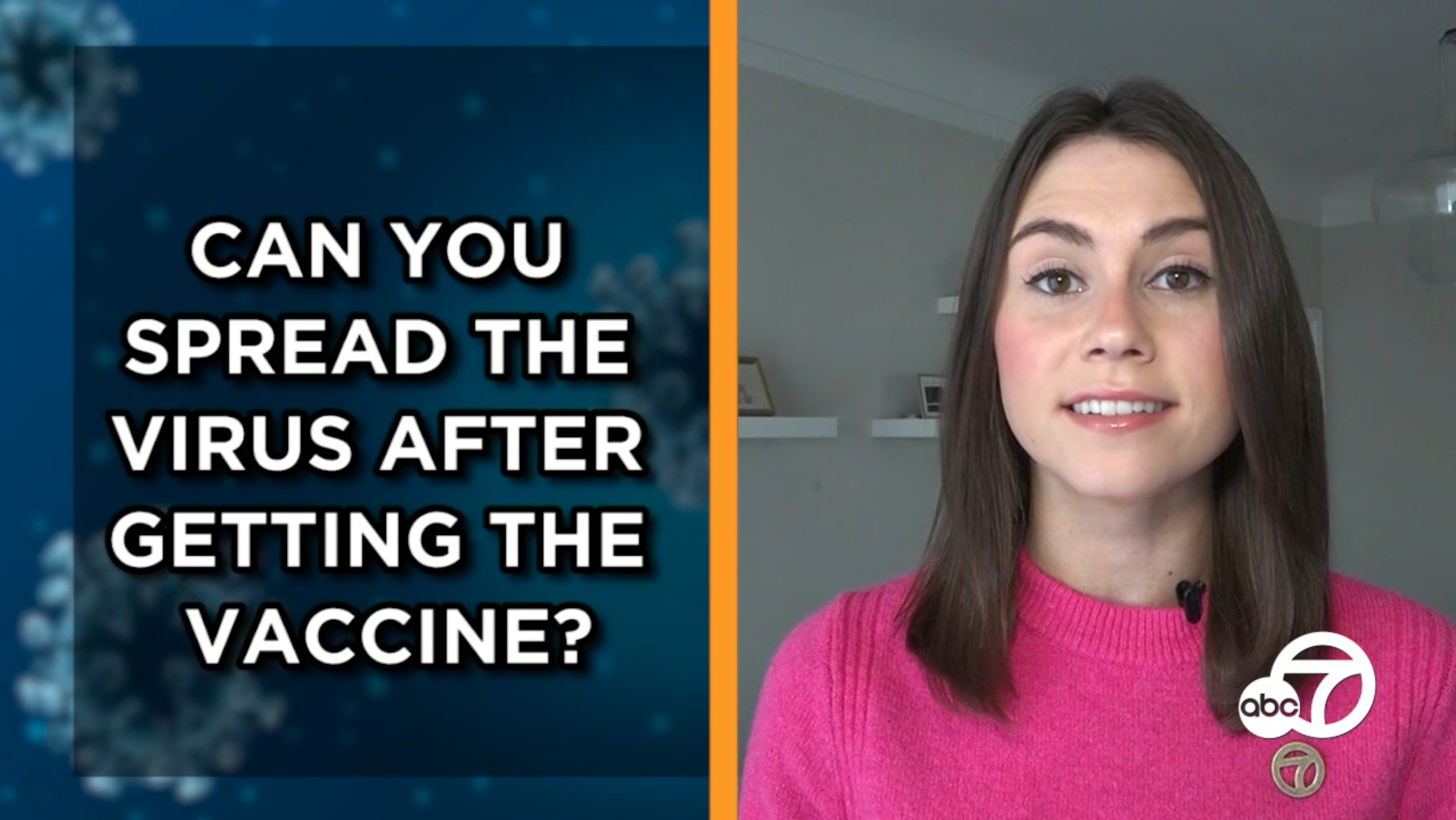California groups call for Latino community to be prioritized in vaccine distribution
BERKELEY, Calif. (KABC) -- As vaccines continue to roll out across California, the plan for prioritization is still a topic of fierce debate. Some community groups in California are urging counties to provide vaccine data that proves equitable distribution.
So far, the state has been vaccinating older adults and certain essential workers. After this phase, officials are planning to move to an age-based system for priority.
MORE: How to get the COVID-19 vaccine in Southern California
But some doctors in Northern California point out that Latinos are the demographic with the highest number of cases in California.
In true pandemic form, Zoom has become one of the vital tools community group Latinos Unidos de Berkeley is relying on to inform this demographic about the COVID-19 vaccine. Last Sunday, they held an hour-long session to answer COVID-19 questions with a medical professional.
MORE: South LA leaders say they need to fight vaccine distrust in communities of color

"We had about 70 members of Latinos who live in Berkeley, monolingual speakers come out," said Paola Laverde, member of Latinos Unidos de Berkeley.
Information is key to combat vaccine hesitancy within the Latino community.
The latest California data shows Latinos have been disproportionally impacted by this virus. Currently, Latinos make up 55% of California's COVID cases.
Dr. Hector Bonilla has seen firsthand the mistrust and hesitancy from many in the community as he worked to enroll Latinos in the Stanford Johnson & Johnson vaccine trials. He believes Latinos should be prioritized when it comes to being vaccinated because they are on the frontlines. Dr. Bonilla is urging county officials to strategically prioritize vaccine distribution within highly impacted neighborhoods.
Having trouble loading the tracker above? Click here to open it in a new window.
VACCINE TRACKER: How California is doing, when you can get a coronavirus vaccine
"Latin population, of course, they are the ones who have been more affected by COVID here in California. They have a priority number 1. They are the source of infections. If we don't control the infection the infections continue to disseminate," said Dr. Bonilla.
As vaccines roll out, San Francisco Supervisor Matt Haney introduced legislation calling for vaccine data by providers, demographics and zip code.
"To create a more comprehensive plan which will also include ensuring that there is more transparency on data," said Supervisor Haney.
MORE: Experts dispel false information, myths about the COVID-19 vaccine

Out of the nine Bay Area counties, only San Mateo and Contra Costa County published vaccine distribution data specifying race and ethnicity. Supervisor Haney is hoping a second vaccination site opening in San Francisco as soon as this week will help.
"A big site here in downtown at the Moscone Center. Ultimately they're saying that the site will be able to do up to 5,000 a day," said Supervisor Haney.
In Southern California, Orange County has published vaccine distribution data specifying race and ethnicity. According to data published on the county's website, 28,262 Hispanic residents in the county have received one or more doses of the vaccine. This means that 11% of vaccine doses in O.C. have been given to Hispanic residents in the county, though they make up more than a third of the population.
Riverside County has not published its data, but health officials sent numbers to ABC7 on Monday that reflect data as of Jan. 29. According to county health officials, 22,882 Hispanic residents in the county have received one or more doses of the vaccine. This means that 18% of vaccine doses in Riverside County have been given to Hispanic residents in the county, though they make up 49% of the population.
MORE: What are the side effects of the COVID vaccine? See our FAQ

KGO-TV contributed to this report.










